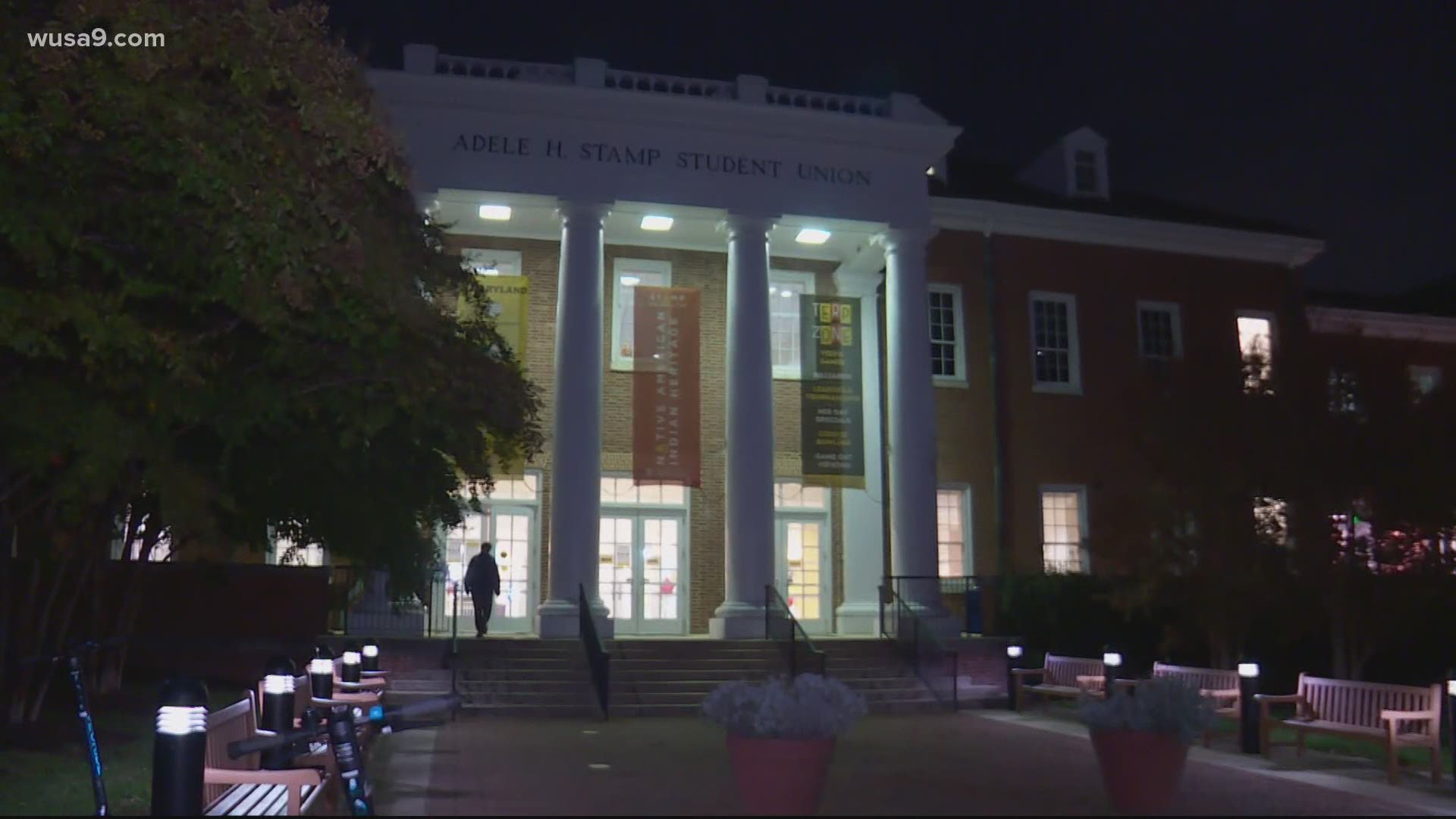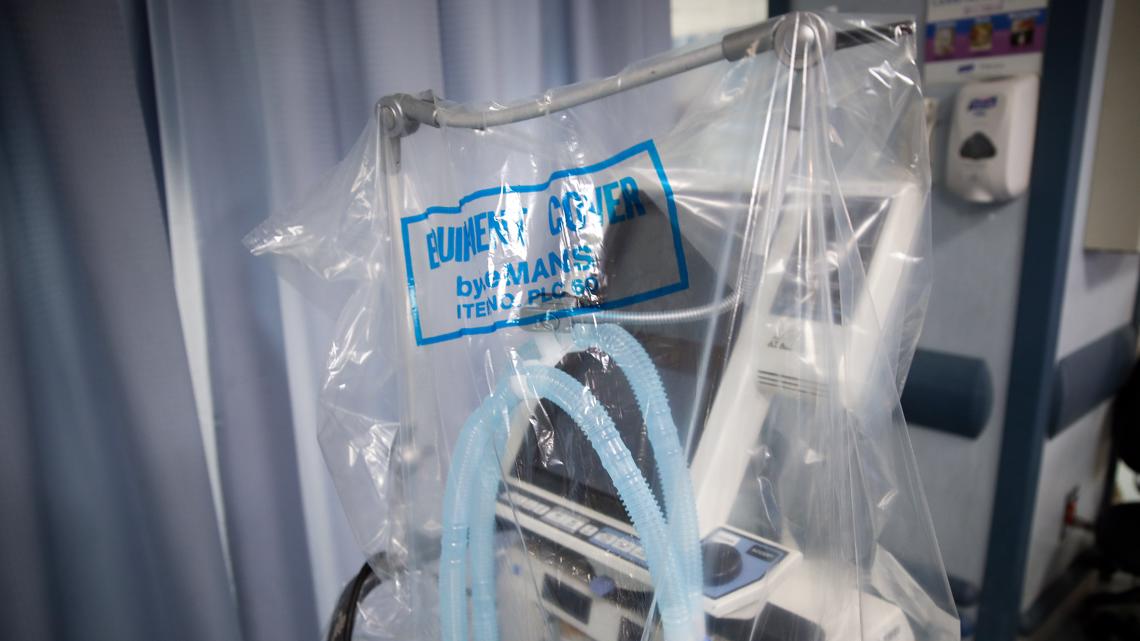COLLEGE PARK, Md. — With cases of coronavirus surging around the country, the return home of college students for the holiday season brings added health concerns this year as states struggle to contain the pandemic once again.
Earlier this month, the Virginia Department of Health (VDH) issued special guidance considerations for students and staff returning home for holidays or extended breaks.
The report noted how students and staff at higher education institutions pose a greater risk of spreading coronavirus to family members and friends at home due to traveling and socializing.
In particular, VDH noted that people coming home from colleges and universities could take special precautions to avoid being exposed to the deadly virus before and during the trip home.
"Students and staff should minimize their interactions with others as much as possible in the 14 days before leaving the IHE (institutes of higher education)," the report read. "Students and staff should also minimize the risk of exposure during travel home. Traveling alone in a private vehicle is the safest option."
VDH also stressed the importance of getting tested and following core prevention steps like social distancing, wearing a mask, and washing hands.
In an interview with WUSA 9 last week, the Maryland Hospital Association worried about potential surging demand at medical facilities in the state if positive cases continued to grow even more.
On Monday, the number of hospital beds currently in use for coronavirus patients in Maryland was at the highest level since late May.
"We’re really nervous about the holiday coming up," said Maryland Hospital Association President and CEO Bob Atlas. "This is real and we all have to take it seriously so we can get through this winter.”
For students at the University of Maryland, concerns over returning home could be felt on campus.
Student Government Association President Dan Alpert told WUSA 9 that he was changing up plans to travel to his family's home in Potomac because of the pandemic.
"I’m leaving later than I usually would. If I didn’t have anything Tuesday, I’d go home Monday night. Now I’m heading home Wednesday night just so I can do work here," he said. "I enjoy seeing my friends from high school and playing football with them Thanksgiving weekend. That's not happening this year. I'm just going home for dinner and not planning on staying long.”
Following months of virtual learning on campus, Alpert said the adjustment to school during the spread of coronavirus has been tough during his senior year.
With Thanksgiving and the holiday season quickly approaching, he said the added travel concerns brought even more heartache.
"Those feelings of loneliness that other students are feeling, I feel too," he said. "Senior year, it’s hard. You want to be there. You want to be with your friends. You want to go do normal college things in your senior year and you can’t.”
After university leaders announced that the rest of the fall semester would be held virtually, Alpert noted how many students made sure to get tested before returning home.
"They don’t want to get their families sick," he said. "Students were hopefully getting tested, getting negative, isolating, and then going home.”
On Monday night, the University of Maryland's COVID-19 Dashboard showed 46 new cases of coronavirus reported on campus over the last week.
The positivity rate of tests administered by the school in the same time frame was measured at 0.8%.
Moving forward, Alpert believed college students could play a vital role in stopping the spread of coronavirus and keeping communities safe.
"As students, we need to keep doing our part," he said. "It’s something we need to accept and do our part to make sure that we’re staying the course.”


